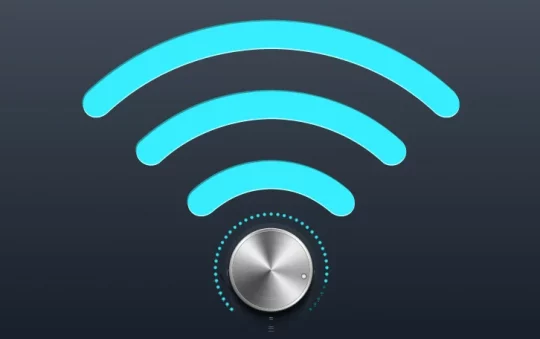If you live in the UK and you’re on a low income or receive certain benefits, you may be eligible for a social tariff from your broadband provider. Social tariffs offer discounted rates on broadband and phone services, making them more affordable for those who need it most.
Our broadband connections are vital for things like communication and entertainment, it’s therefore important that they are affordable for everyone. Social tariffs refer to low-cost broadband deals offered to customers who receive benefits such as Universal Credit and Pension Credit.
In this article, we’ll explain everything you need to know about social tariffs, including which providers offer them and who can access them.
What is a broadband social tariff?
If you’re on a low-income, social tariffs are discounted deals that may be available to you. They start at £14.40 per month and often don’t have price increases or exit fees like other broadband plans.
Social tariffs are a type of deal that helps those who can’t afford broadband services. According to research done by Ofcom, social tariffs could potentially help 4.2 million homes in the United Kingdom.
Who is eligible for broadband social tariffs?
Chances are, you can get a social tariff if you receive certain benefits like Universal Credit or Pension Credit.
The requirements for this vary depending on which broadband provider you use – some offer social tariffs to only those who receive Universal Credit, while others extend eligibility to recipients of Income Support, Jobseeker’s Allowance and Employment & Support Allowance.
If you receive Guarantee Credit, which is an addition to Pension Credit, then you are most likely eligible for this program. Also, some providers such as Hyperoptic, KCOM and Vodafone offer social tariffs to households that get non-means-tested benefits like Personal Independence Payment.
List of broadband social tariffs and providers
| Provider | Deal | Speed | Price per month |
|---|---|---|---|
| Vodafone | Essentials | 38Mbps | £12 |
| Community Fibre | Essential | 10Mbps | £12.50 |
| Virgin Media | Essential | 15Mbps | £12.50 |
| BT | Home Essentials 1 | 36Mbps | £15 |
| Hyperoptic | Fair Fibre 50 | 50Mbps | £15 |
| BT | Home Essentials 2 | 67Mbps | £20 |
| Sky | Basics | 36Mbps | £20 |
| NOW | Basics | 36Mbps | £20 |
| Hyperoptic | Fair Fibre 150 | 150Mbps | £25 |
Will a social tariff have a broadband connection that is fast enough?
Various speeds are at your disposal – some companies only have standard-speed internet (10-15Mbps) on their social tariffs, but superfast fiber optic speeds from 36-67 Mbps are accessible in many areas. Standard-speed broadband should suffice if you only need to use it for occasional browsing, but most households would likely benefit more from superfast broadband.
Eligible customers who live in certain parts of the UK can access even faster connections. Social tariffs with average speeds of 100Mbps or more are offered by Air Broadband, Grayshott Gigabit and Hyperoptic.
Is it worth signing up to a social tariff?
This depends on your individual circumstances. If you’re someone who struggles to pay their monthly broadband bill, a social tariff could relieve some of that financial pressure.
Of course, there are other ways to save money on your broadband bill such as shopping around for a cheaper deal or negotiating with your current provider. But if you’re eligible for a social tariff, it’s definitely worth considering as it could be the most affordable option for you.
Social tariffs are beneficial because they are more affordable than other broadband deals, and the price is fixed – unlike with many other providers.
Although social tariffs have a couple of disadvantages – not many high-speed services and having to prove eligibility to sign up.
Although it may be hard to believe, there are affordable broadband deals that don’t come from social tariffs. In fact, several large providers offer great prices on their services, including superfast broadband for only £20-25 per month for new customers.
Is it difficult to sign up for a social tariff?
Although there are only a few extra steps, signing up for a social tariff broadband deal is process is different from opting into a typical broadband deal.
Social tariffs aren’t usually advertised on broadband switching sites or provider websites. Usually, providers have dedicated webpages for their social tariffs that you can find with a search engine. For some of them, you’ll need to sign up for the tariff by contacting the provider through email or phone.
When you sign up to a social tariff, you’ll be asked to share evidence of proof of benefits so make sure that you can take a photo or scan the documents.
Will I need to pay an exit fee to move over to a social tariff?
In most cases, companies will waive any early termination fees if you move from an existing contract to their social tariff.
I’m not eligible for a social tariff – what should I do?
If you’re concerned how much your broadband is costing you, the best course of action to take depends on whether or not you have a fixed-term contract.
If you’re in a fixed-term contract, it’s unlikely you’ll be able to leave without paying a termination fee. However, if you’re ever having financial difficulties, reach out to your provider rather than skipping a payment. They might arrange an affordable payment plan, give you extra time to pay, or lower your bill by moving you on to a cheaper tariff.
Ofcom has communicated that broadband providers should take all necessary measures to keep people connected. In addition, the major providers have promised the UK government they will assist those having difficulty with their payments.
If you’re not in a long-term contract with your broadband company, it’s cheaper to look around for other options. You can switch providers and get an introductory offer that is probably more affordable than what you’re currently paying.
Why don’t all broadband providers offer social tariffs?
The Digital Secretary and telecoms regulator (Ofcom) have both called for more broadband providers to offer social tariffs. We think that companies who don’t offer social tariffs should contemplate the support they’re giving low-income families and see if they can do more.
While many big broadband providers do offer social tariffs for fixed broadband services, EE, Plusnet, Shell Energy Broadband and TalkTalk are not currently among them.
Some providers, such as TalkTalk, have other methods of supporting vulnerable consumers. For example, TalkTalk partnering with the Department for Work and Pensions offers six months of free fibre broadband to certain jobseekers.
If you are having difficulty paying your broadband bill then contact your provider as soon as possible – you may also want to consider contacting a debt charity such as Stepchange or the Citizens advice bureau too.




